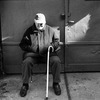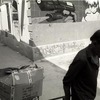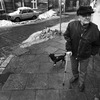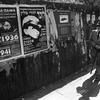Bush visits Cracow
President George W Bush has told the Polish people that the US is committed to a strong Nato, despite divisions over the war in Iraq. Standing alongside Polish President Aleksander Kwasniewski at Krakow's Wawel Castle, Mr Bush thanked Poland for its support in the war which toppled Saddam Hussein. The US president urged unity in confronting terrorism and weapons of mass destruction and announced a new initiative to fight the proliferation of chemical, biological and nuclear weapons. Before his speech, Mr Bush visited the remnants of a gas chamber and crematorium at nearby Auschwitz-Birkenau, the notorious former Nazi death camp where 1.5 million Jews and many other victims were murdered. "This site is a sobering reminder of the power of evil and the need for people to resist evil," he said. Mr Bush is on the first leg of a diplomatic tour that on Sunday will see him meeting world leaders gathered in the Russian city of St Petersburg as it marks its 300th anniversary.
Mr Bush's speech was billed as a first step in healing the rift US and some European countries over Iraq. "We have seen unity and common purpose. We've also seen debate, some of it healthy, some of it divisive," Mr Bush said. "This is a time for all of us to unite in the defence of liberty, and to step up to the shared duties of free nations. This is no time to stir up divisions in a great alliance." Mr Bush underlined the importance of Nato, saying a strong Atlantic alliance would serve security and peace. He said the greatest threat to the "alliance of freedom" came from "a lethal combination of terrorist groups, outlaw states seeking weapons of mass destruction, and ideology of power and domination that targets the innocent and justifies any crime". He added that a new initiative was being launched to inspect planes and ships to "keep these weapons away from our shores". The US president also called on Europe and America to unite to face challenges such as poverty and Aids. Mr Bush - who is due to meet Israeli and Palestinian leaders next week - said he would do all he could to reach and enforce a peace agreement in the Middle East.
The BBC's Nick Walton says that many Poles are enjoying the attention - and influence - that such a visit by a prominent world statesman generates. Just ahead of Mr Bush's visit, several hundred protesters staged a noisy demonstration in Krakow's main square. However, it soon petered out - which is perhaps a reflection of the Poles' broad support for the US president. Poland, recently classed by US Defence Secretary Donald Rumsfeld as "new Europe" in contrast to the "old Europe" of France and Germany, contributed around 200 combat troops to war in Iraq. Warsaw now enjoys preferential treatment in administering and rebuilding the country. Poland is due in a week's time to vote on European Union membership - an issue which many Poles see as the key to the country's future - and the US is keen for such a pro-American country to join the Union.
Following his visit to Poland, the US leader will go to Russia for a meeting with President Vladimir Putin in St Petersburg - joining ceremonies marking the historic city's 300th anniversary. Mr Bush will then head to Evian in France to attend one day of the two-day G8 summit of leading industrialised nations, before flying on to the Middle East. At Evian, President Bush will be grouped with the main opponents of the Iraq war and will hold a face-to-face meeting with French President Jacques Chirac. In an interview with foreign journalists on Thursday, President Bush insisted the Evian summit would not be a "confrontational meeting", but rather how all sides would "move forward".

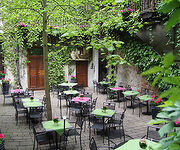 Kawaleria Szarza Smaku
Kawaleria Szarza Smaku
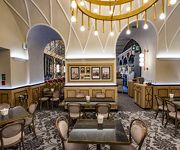 Europejska
Europejska
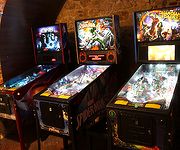 Krakow Pinball Museum
Krakow Pinball Museum



